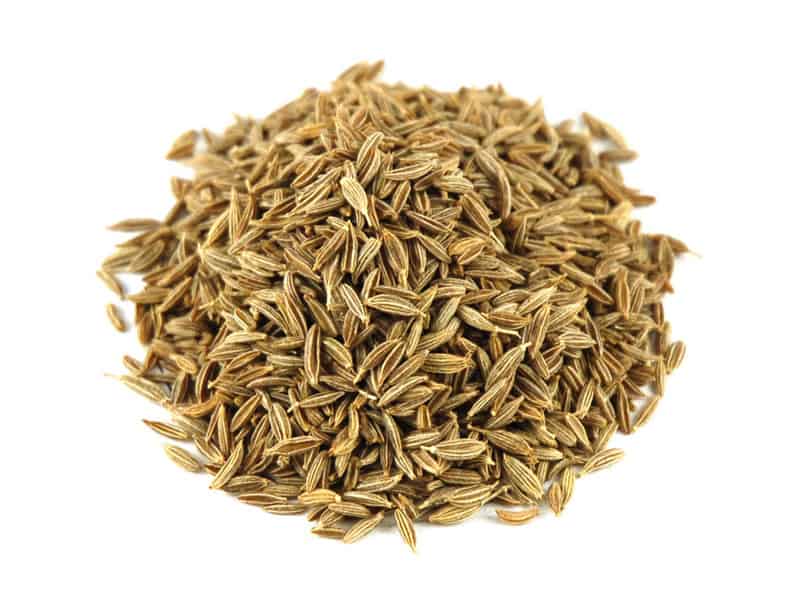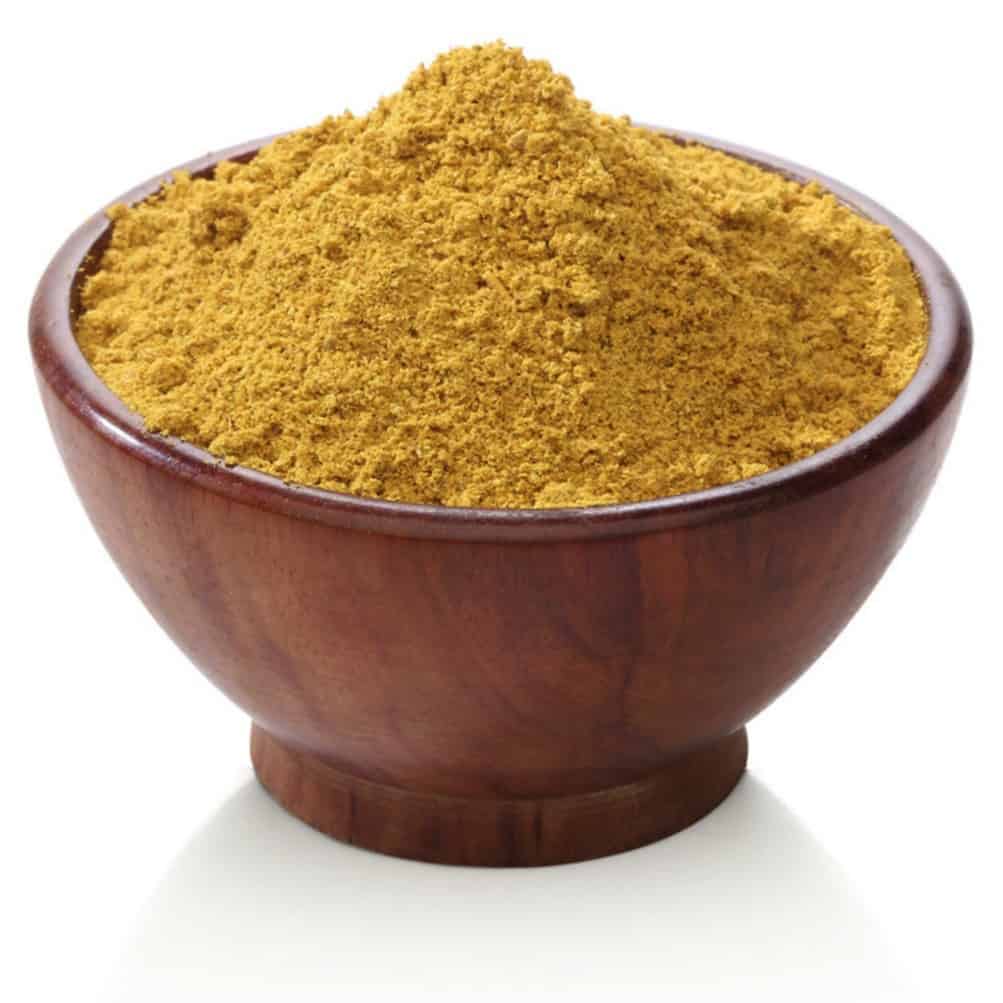
Like other spices, cumin has been used for centuries as a natural remedy for various health ailments. Research studies also suggest cumin may have many beneficial effects on the body. Cumin is considered a seed spice like coriander and fennel seeds.
These seed spices are a rich source of antioxidants which can translate to lowering risk for certain cancers, cardiovascular disease, inflammation and type 2 diabetes (1).
Cumin seeds have been shown from research to: inhibit growth of cancer cells in the stomach, protect against colon cancer in rats, lower blood urea content in diabetic animals, increase antibacterial defense and protect against blood clotting.
Cumin has also recently come into the spotlight as a way to help accelerate weight loss.
Some research does suggest adding cumin into a weight loss plan may have additional benefit for weight loss.
However, more research is needed for the dose requirements for an effect of cumin on weight loss.
Also, keep in mind one food substance is never a magic bullet for weight loss.
Weight loss ultimately requires a shift in energy intake and energy expenditure.
Sprinkling cumin on your food alone may not cause any dramatic weight loss changes, but adding cumin to a healthy, balanced low energy diet could enhance weight loss efforts or at the minimum provide an additional source of antioxidants.
Research for cumin and weight loss
One of the main arguments for cumin helping weight loss is from a 2014 study (1) with overweight and obese women.
This study had 88 women divided into two groups for 3 months: eating yogurt with two meals per day with 3 grams of cumin or eating yogurt with two meals per day without cumin.
All participants received the same nutrition counseling to lower food intake by 500 calories for desired weight loss.
After 3 months, researchers found the cumin yogurt group had significant more weight loss than the non-cumin group.
On average, the cumin group had lost about 3 more pounds than the non-cumin group.
They also lost a significant higher amount of body fat compared to the non-cumin group (2).
The cumin group from this study also showed a benefit in blood lipid levels; they had lower levels of blood triglycerides and cholesterol levels after the 3 months compared to the non-cumin group.
Another study looking at effects of cumin and weight loss is from a 2015 study (3).
Overweight participants were assigned to one of three groups for eight weeks: cumin supplement, orlistat supplement (fat blocker) or a placebo group.
Both the orlistat and cumin groups lost significantly more weight after 8 weeks than the placebo group.
The cumin group had significantly lower insulin levels compared to the two other groups.
This study also suggests cumin may help with weight loss, but it is not known what diet study participants were on for this study.
Taking supplements for weight loss may have short term results, but long term use for supplements and weight regulation is not recommended.
More research is needed for consuming cumin in the diet and how that can affect weight regulation.
How does cumin help weight loss?
The studies mentioned above suggest cumin may play a role in assisting with fat loss.
Researchers are still investigating how cumin affects weight regulation, but there are some potential theories how spices affect metabolism.
Some compounds in cumin, like other plants, called phytosterols (4) can help block the absorption and increase the elimination of cholesterol from the body.
This may be one reason why participants consuming the cumin had lower blood levels of cholesterol and triglycerides.
Another way cumin may help with weight loss is cumin, like other spices, may help boost metabolic rate.
For example, varying amounts of chili intake have been shown to influence energy metabolism (5).
While this effect may be relatively small, taken together with other weight loss efforts, it could promote weight loss efforts.
How to add more cumin in your diet
Middle Eastern and Indian cuisines incorporate a higher amount of cumin in their dietary intake.
It can be used as a flavoring agent for curries, savory rice or meat dishes, stir fries, etc.
If you don’t naturally use a lot of cumin in your cooking, you can also try sprinkling cumin on roasted vegetables, egg dishes or sprinkle on nuts.
Cumin could also be added to dips, sauces and dressings.
The 2014 study with the cumin added to yogurt was about the equivalent of a teaspoon of cumin per day.
While this may be a lot to take in at once, you can start by gradually adding more cumin throughout your day.
Conclusion: Cumin and weight loss
Some studies have shown cumin may be an aid for weight loss and may even more specifically help promote fat loss.
Adding more cumin to your diet can be a way to add a source of antioxidants and phytosterols which can translate to other potential health benefits.
However, keep in mind no one food or spice is a magic bullet for weight loss or preventing a chronic disease.
Adding cumin to your diet doesn’t guarantee weight loss will occur.
Emphasis should still be placed on a healthy, balanced diet and increasing exercise for overall health and long term weight loss.
Cumin, like other spices, can be sold as a supplement. Before you take any supplement, you should speak with your healthcare team first.
Remember, adding a variety of spices and herbs can increase your antioxidant intake and provide a depth of flavor to your food intake.
While cumin has some health and potential weight loss benefits, other spices have health benefits too, so don’t limit your spice intake to just cumin.












